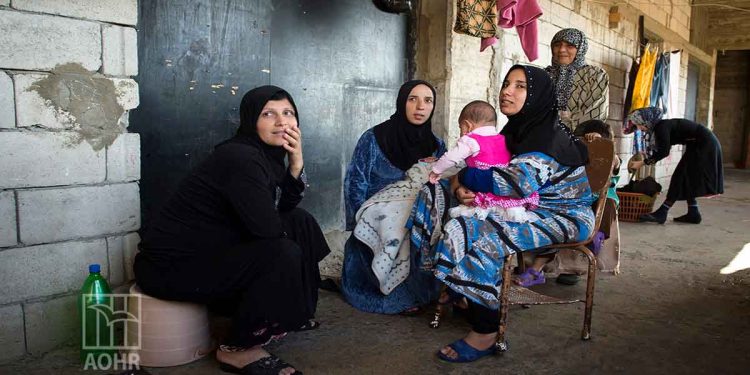Lebanon has been suffering from successive economic and political crises, which has in turn negatively affected refugees in the country, and increased poverty rates among them.
International organisations announced that 90 percent of the Syrian refugees in Lebanon need humanitarian assistance to survive, in light of the worst economic crisis the country has witnessed in decades.
A joint statement issued by the United Nations High Commissioner for Refugees, the World Food Program and the United Nations Children’s Fund (UNICEF) called for the continuation of providing support and protection to the neediest families in Lebanon.
The statement revealed that “The preliminary results of the assessment of the vulnerabilities of Syrian refugees in Lebanon for 2022 show a sharp and continuous decline in their living conditions. Even basic needs have become out of reach for most of them.”
“The levels of food security for refugees in Lebanon are extremely worrisome,” Abdallah Al-Wardat, WFP Representative and Country Director in Lebanon said via the joint statement. “Thanks to the generous support of our donors, WFP is supporting one in every three people in the country. We are providing cash assistance, food parcels and school snacks, and supporting livelihoods activities across Lebanon.”
“Despite the price of essential items and services skyrocketing by over 700 percent since June 2020, families in Lebanon still earn less while having to pay much more for the most basic goods. UNHCR and partners continue to support the most vulnerable refugees with humanitarian assistance. UNHCR also supports public institutions, including hospitals and municipalities,” said the agency’s representative to Lebanon Ayaki Ito, UNHCR Representative in Lebanon.
An assessment of the vulnerabilities of Syrian refugees in Lebanon for the current year revealed that they “reduce their diets.”
“Almost 87 percent of families listed food as their main priority followed by housing and healthcare,” the statement said, adding that Syrian refugees have been cutting back on meals, healthcare and education expenses to prioritize food purchases.
The assessment revealed that “60 percent of Syrian refugee children between the ages of six and 14 were attending school regularly in 2022, with the rate dropping to eight percent attendance for the older adolescents at upper secondary school level.”
“Additionally, children’s nutrition is at stake, with less than half of infants under five months of age being exclusively breastfed, and only 11 percent meeting the minimum number of meals and food groups per day,” the UN’s assessment found. “Six out of 10 Syrian refugee boys and girls experienced violent disciplinary methods.”
The number of Syrian refugees residing in Lebanon is about 1.5 million, according to official estimates, and most of them suffer from difficult living conditions, especially with the exacerbation of the economic crisis in the Arab country.






























